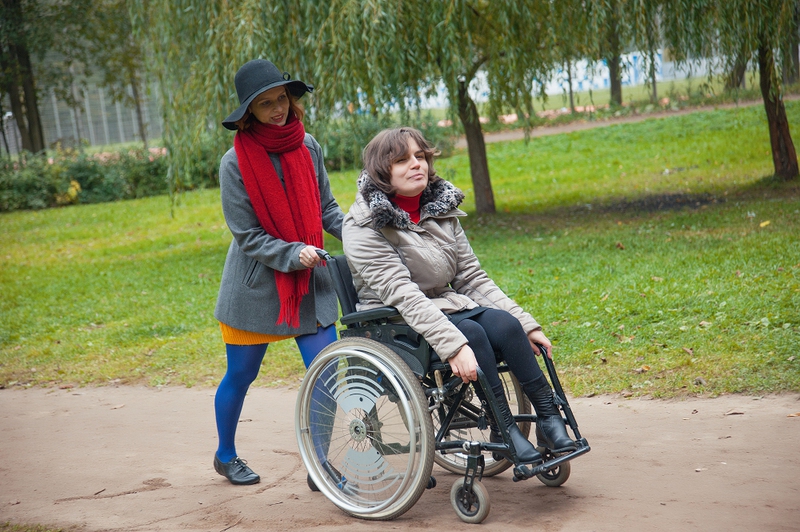Multiple sclerosis is a debilitating disease that impacts how information goes from your brain to the rest of your body. Most people are diagnosed with MS between the ages of 20 and 40, when symptoms first appear. Some symptoms may be so subtle that people won’t ask themselves, "what is MS" and "Do I have it?" Symptoms can appear and then disappear, but eventually it becomes a chronic disease. There is currently no cure for MS, but if it is diagnosed early, there are treatments that can help keep your body functioning well longer.

What Are the Early Signs and Symptoms of Multiple Sclerosis?
Tingling and numbness
Because MS causes disruptions in the messages sent from the brain down the spinal cord to your body, these confusing signals can result in a tingling sensation. Or if no signals are sent, this causes numbness. This is one of the most common early signs of MS, and usually happens in the face, arms, legs and fingers.
Vision issues
MS causes your optic nerve to become inflamed, which makes your vision blurry or causes double vision and even loss of vision. The disruption of your vision can occur slowly and you may not even notice it.
Spasms and pain
Nearly 50 percent of people with multiple sclerosis have chronic pain, according to a survey by the National MS Society. With the mixed up nerve signals, you may experience muscle spasms, stiffness and sore muscles. This usually happens in the legs, but can happen in other extremities.
Dizziness and balance issues
You maybe have issues on walking due to being dizzy or feeling off balance. You may feel as if the world is spinning around you, particularly when you’re trying to stand up.
Bladder problems
While bladder issues may not cause you to ask “what is MS”, it’s actually a symptom that affects up to 80 percent of people with MS. These issues might include needing to go to the bathroom a lot or inability to hold your urine.
Cognitive problems
A majority of people with multiple sclerosis will end up with some kind of cognitive function issue such as memory issues, a bad attention span, problems speaking and feeling scatterbrained. Depression is also common in people with MS.
Unusual sensations
Besides the tingling feelings, people with multiple sclerosis usually say they constantly have the “pins and needles” feeling. Other common feelings include itching, stabbing, burning, and more.
Sexual dysfunction
In women this can mean vaginal dryness, and in men it can mean erectile dysfunction. Both genders may also have a lower sex drive or difficulty reaching orgasm.
Tremor
The uncontrollable shaking of hands and feet is a common symptom that comes up with people if you want to know “what is MS” and "what are the symptoms".
Emotional issues
While depression is especially common in people with MS, it can also cause mood swings, irritability, and even a disorder called pseudobulbar affect, which causes fits of uncontrollable crying and laughter.
Less common symptoms of MS include
hearing loss
seizures
breathing issues
slurred speech
difficulty swallowing
If You Suspect You Have MS, What to Do
Getting a definitive multiple sclerosis can be difficult, as its symptoms also mirror those of other nerve diseases. If your doctor thinks you have MS, he will likely send you to a neurologist, which treats diseases of the brain and nerves. They will run tests that will test for nerve and brain damage.
While there is no definitive test to diagnose MS, there are multiple tests that can rule out other illnesses.
Blood tests can eliminate Lyme disease and AIDS as potential diseases.
Other tests will check your balance, vision, and other limb functions.
An MRI will show if there is any nerve or brain damage.
Your cerebrospinal fluid, which cushions the brain and spinal cord, can be analyzed for proteins that are often found in MS patients.
How to Treat Multiple Sclerosis
After knowing "what is MS" and its symptoms, you may care about the treatment of it. While there is no definitive cure for multiple sclerosis now, there are some treatments out there that can improve your quality of life and how your body functions.
There are some medications that can slow down the progression of MS, prevent or treat certain symptoms and help you control stress caused by MS.
Drugs that can slow nerve damage include:
Beta interferon
Daclizumab
Dalfampridine
Natalizumab
Mitoxantrone
Ocrelizumab
Teriflunomide
Steroids can help minimize MS symptom attacks. Muscle relaxants can also help to reduce muscle spasms and tremors.
If you go to a physical therapist, they can advise you some exercises that will help you maintain your strength and balance. Also, an occupational therapist can help you make everyday tasks a little easier, such as using a cane, walker or other devices to make it easier to get around.
There are things you can do to help yourself get through MS symptoms. Getting regular exercise can help you keep your energy up, particularly yoga, which can help with balance and flexibility. Make sure you’re mindful of your emotional health, and seek help from family, friends, or a counselor if you need it. Support groups can also be a big help where you can get advice from other people dealing with similar symptoms.
View All Comments /Add Comment